What is Mechanical Engineering?
One of the oldest and broadest fields of engineering, Mechanical engineering deals with the design, construction, and use of machines. The programme endows students with the basic understanding and knowledge of how heavy tools and machinery work. A student pursuing a mechanical engineering programme will acquire knowledge about designing of automobiles, electric motors, aircraft and other heavy vehicles.
Mechanical engineers design everything from new batteries, athletic equipment to medical devices and from personal computers, air conditioners, automobile engines to electric power plants. These engineers also design machines that produce these innovations.
The scope of mechanical engineering in India and abroad is huge for every aspect of our lives are touched by mechanical engineering in one way of the other. Spanning multiple industries, the career opportunities for students pursuing the programme is huge.
Popular Engineering Entrance Exams
Some of the popular engineering entrance exams that an aspirant should consider appearing for admission to Biomedical Engineering courses are mentioned below:
Exams JEE MAIN JEE ADVANCED SRMJEE VITEEE KITEEE COMED-K BITSAT |
|---|
On the other hand, admission to the PG engineering programmes offered at colleges in the country is majorly done on the basis of GATE scores.
Mechanical Engineering: Eligibility Criteria
The basic eligibility requirement to pursue a Mechanical Engineering programme at the UG and PG level is:
- Undergraduate (UG): Students should have passed Class 10+2 exam from a recognized board with Physics, Chemistry and Mathematics as core subjects. They should also have secured minimum aggregate marks of 60% in the above subjects.
- Postgraduate (PG): Aspirants must have completed a BTech degree in the same specialization with a passing percentage in aggregate of the subjects studied at the degree level.
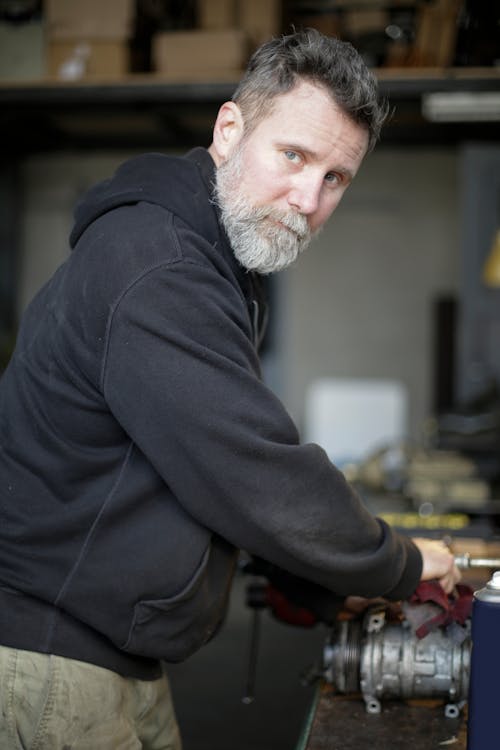
Note: The eligibility criteria would vary from college to college ans country to country.
Mechanical Engineering: Courses and Syllabus
Semester 1 | Semester 2 |
|---|---|
Chemistry | Modern Biology |
Electrical Sciences | Introduction to Computing |
Mathematics - I | Mathematics - II |
Physics - I | Engineering Mechanics |
Chemistry Laboratory | Physics - II |
Workshop /Physics Laboratory | Computing Laboratory |
Engineering Drawing | Basic Electronics Laboratory |
Physical Training - I | Physics Laboratory/Workshop |
[NCC/NSO/NSS] | Physical Training - II |
[NCC/NSO/NSS] | |
Semester 3 | Semester 4 |
Mathematics-III | Fluid Mechanics - I |
Thermodynamics | Manufacturing Technology - I |
Solid Mechanics - I | Solid Mechanics - II |
Engineering Materials | Kinematics of Machinery |
HSS Elective - I | HSS Elective - II |
Machine Drawing | Workshop - II |
Physical Training - III | Mechanical Lab - I |
NCC/NSO/NSS | Physical Training - IV |
NCC/NSO/NSS | |
Semester 5 | Semester 6 |
Fluid Mechanics - II | Applied Thermodynamics - I |
Manufacturing Technology - II | Machine Design |
Dynamics of Machinery | Mechanical Measurements |
Design of Machine Elements | Heat and Mass Transfer |
Electrical Machines | Control Systems |
HSS Elective - III | Mechanical Lab - III |
Mechanical Lab - II | |
Semester 7 | Semester 8 |
Summer Training (PP/NP) | Industrial Engineering and Operation Research |
Applied Thermodynamics - II | Dept Elective - III |
Dept Elective - I | Dept Elective - IV |
Dept Elective - II | HSS Elective - IV |
Open Elective - I | Project- II |
Mechanical Lab IV | |
Project- I |
Why study Mechanical Engineering?
If you’re interested in the design, development, installation, operation or maintenance of just about anything that has moveable parts then mechanical engineering could be the programme of study for you.
Mechanical Engineering is perhaps the most diverse and versatile of the engineering disciplines. In addition to physics and mathematics, it encompasses key elements of aerospace, electrical, civil, chemical and even materials science and bio-engineering. Mechanical engineering touches virtually every aspect of modern life, from mobile phones and biomedical devices, to aircrafts and power plants. Not only engineering, mechanical engineers deal with economic issues, from the cost of a single component, to the economic impact of a manufacturing plant. Besides this, mechanical engineers can also be found in sales, engineering management, and corporate management. Versatility is another unique advantage in a world that is undergoing constant economic, political, industrial, and social change. Mechanical engineers are educated and positioned, not only to adapt, but to define and direct change.
Mechanical Engineering is perhaps the most diverse and versatile of the engineering disciplines. In addition to physics and mathematics, it encompasses key elements of aerospace, electrical, civil, chemical and even materials science and bio-engineering. Mechanical engineering touches virtually every aspect of modern life, from mobile phones and biomedical devices, to aircrafts and power plants. Not only engineering, mechanical engineers deal with economic issues, from the cost of a single component, to the economic impact of a manufacturing plant. Besides this, mechanical engineers can also be found in sales, engineering management, and corporate management. Versatility is another unique advantage in a world that is undergoing constant economic, political, industrial, and social change. Mechanical engineers are educated and positioned, not only to adapt, but to define and direct change.
What would I study?
Our students build upon their knowledge of science and maths gained in school to learn about materials, solid and fluid mechanics, thermodynamics, heat transfer, control, product design and manufacturing processes. Courses on communication, business and other social-sciences along with the technical subjects are designed to groom students with well-rounded perspectives, as well as the ability and flexibility to work in a variety of settings. Practical learning is integrated into the curriculum through B.Tech projects and by providing an opportunity for summer internship with national and international University and industry to solve engineering and scientific problems.
Our students build upon their knowledge of science and maths gained in school to learn about materials, solid and fluid mechanics, thermodynamics, heat transfer, control, product design and manufacturing processes. Courses on communication, business and other social-sciences along with the technical subjects are designed to groom students with well-rounded perspectives, as well as the ability and flexibility to work in a variety of settings. Practical learning is integrated into the curriculum through B.Tech projects and by providing an opportunity for summer internship with national and international University and industry to solve engineering and scientific problems.
What are my career prospects?
The broadness of the Mechanical Engineering degree offers a wide array of career possibilities. The key characteristics of the profession are its breadth, flexibility, and individuality. The career paths of mechanical engineers are largely determined by individual choices, a unique advantage in a dynamic world. Mechanical engineers are capable of working in a wide variety of industry sectors, and new technologies will create industries that don't exist today. Mechanical engineers are no longer confined to the traditional industries of aerospace, automotive, and manufacturing, but are also employed extensively in important emerging areas, such as nuclear technology, robotics, biomedical technology and energy systems. Furthermore, our students acquire valuable skills in creative thinking, critical analysis and teamwork, which are highly sought after in any engineering industry, consulting and management. The rapidly-evolving technologies and economies of today require graduates with an adaptable and broad skill set, which the Mechanical Engineering degree at IITK offers. So come join us and turn your ideas into reality!
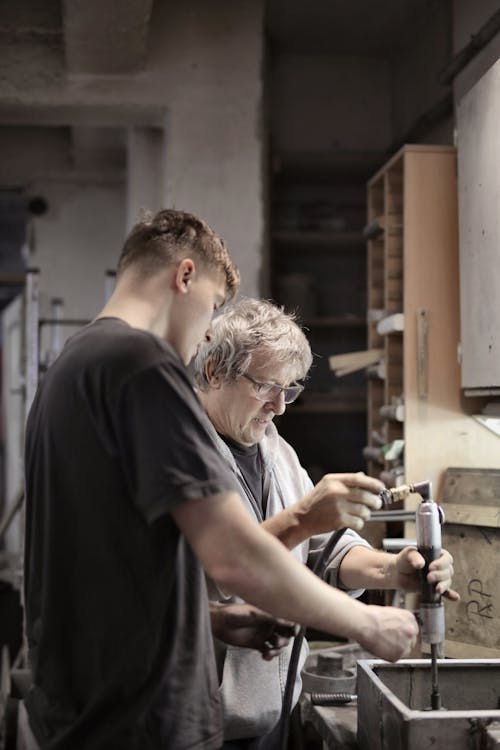
The broadness of the Mechanical Engineering degree offers a wide array of career possibilities. The key characteristics of the profession are its breadth, flexibility, and individuality. The career paths of mechanical engineers are largely determined by individual choices, a unique advantage in a dynamic world. Mechanical engineers are capable of working in a wide variety of industry sectors, and new technologies will create industries that don't exist today. Mechanical engineers are no longer confined to the traditional industries of aerospace, automotive, and manufacturing, but are also employed extensively in important emerging areas, such as nuclear technology, robotics, biomedical technology and energy systems. Furthermore, our students acquire valuable skills in creative thinking, critical analysis and teamwork, which are highly sought after in any engineering industry, consulting and management. The rapidly-evolving technologies and economies of today require graduates with an adaptable and broad skill set, which the Mechanical Engineering degree at IITK offers. So come join us and turn your ideas into reality!

Job Growth And Prospects
According to the U.S. Bureau of Labor Statistics, available jobs for mechanical engineers are expected to increase by five percent between 2012 and 2022. Although the job growth for this sector is slower than the average of all occupations, those who are able to keep their skills current and stay abreast of the latest technological advancements in the field will fare better when looking for work in this competitive market.
Despite the outlook for the profession as a whole, there will be some areas of growth in the field. For example, mechanical engineers who pursue jobs in the transportation industry will see more growth as organizations focus on new automotive technology innovations, such as clean diesel and hybrid-electric cars. Also, there will be an increased need for mechanical engineers in the oil and gas extraction industry.
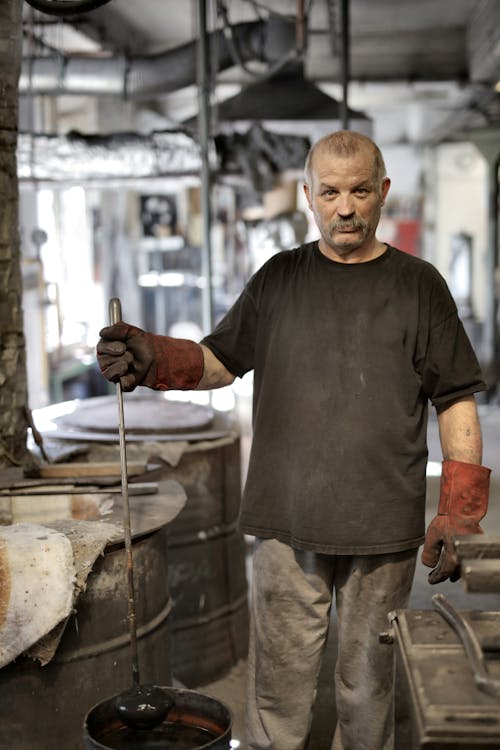
Mechanical engineers are employed in nearly every kind of industry and business type, from small startups to Fortune 500 companies. They are involved with seeking new knowledge through research, creative design and development, and with the construction, control, management and sales of the devices and systems needed by society. Additionally, some mechanical engineers take their knowledge and apply it to non-traditional career pathways in medicine or law.
Mechanical engineers held about 258,100 jobs in 2012. They work mostly in manufacturing industries, architectural and engineering services, and research and development.
The industries employing the most mechanical engineers in 2012 were as follows:
| Architectural, engineering, and related services | 22% |
| Machinery manufacturing | 14 |
| Transportation equipment manufacturing | 13 |
| Computer and electronic product manufacturing | 8 |
| Fabricated metal product manufacturing | 6 |
The rest are employed in general-purpose machinery manufacturing, automotive parts manufacturing, and testing laboratories.
Mechanical engineers generally work in professional office settings. They may occasionally visit worksites where a problem or piece of equipment needs their personal attention. In most settings, they work with other engineers, engineering technicians, and other professionals as part of a team.
Work Schedules
Most mechanical engineers work full time, and about one-third worked more than 40 hours a week in 2012.
Mechanical engineers need a bachelor’s degree. A graduate degree is typically needed to conduct research. Mechanical engineers who sell services publicly must be licensed in all states and the District of Columbia.
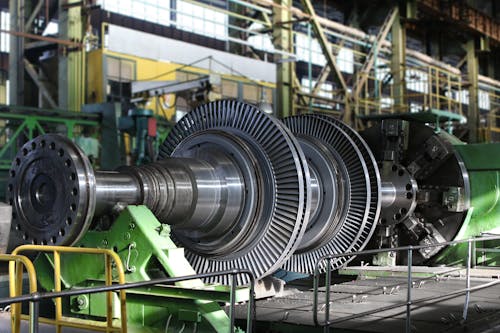
Education
Nearly all entry-level mechanical engineering jobs require a bachelor's degree in mechanical engineering or mechanical engineering technology.
Mechanical engineering degree programs usually include courses in mathematics and life and physical sciences, as well as engineering and design courses. Mechanical engineering technology programs focus less on theory and more on the practical application of engineering principles. Programs typically last 4 years, but many students take between 4 and 5 years to earn a degree. Mechanical engineering degree programs may emphasize internships and co-ops to prepare students for work in industry.
Some colleges and universities offer 5-year programs that allow students to obtain both a bachelor’s and a master’s degree. Some 5-year or even 6-year cooperative plans combine classroom study with practical work, enabling students to gain valuable experience and earn money to finance part of their education.
ABET accredits programs in mechanical engineering and mechanical engineering technology. Most employers prefer to hire students from an accredited program. A degree from an ABET-accredited program is usually necessary to become a licensed professional engineer.
Licenses, Certifications, and Registrations
All 50 states and the District of Columbia require licensure for engineers who offer their services directly to the public. Licensed mechanical engineers are designated as professional engineers (PEs). The PE license generally requires a degree from an ABET-accredited engineering program, 4 years of relevant work experience, and passing a state exam.
Recent graduates can start the licensing process by taking the exam in two stages. They can take the Fundamentals of Engineering (FE) exam prior to or right after graduation. Engineers who pass this exam commonly are called engineers in training (EITs) or engineer interns (EIs). After gaining experience, EITs can take a second exam, called the Principles and Practice of Engineering exam, for full licensure as a PE.
Several states require engineers to take continuing education to renew their licenses every year. Most states recognize licensure from other states, as long as the other state’s licensing requirements meet or exceed their own licensing requirements.
Professional organizations, such as the AMERICAN SOCIETY OF MECHANICAL ENGINEERS, offer a variety of certification programs for engineers to demonstrate competency in specific fields of mechanical engineering.
Advancement
Graduate education is essential for engineering faculty positions in higher education, as well as for some research and development programs. Many experienced mechanical engineers earn graduate degrees in engineering or business administration to learn new technology and broaden their education and enhance their project management skills. Many become administrators or managers after obtaining a graduate degree.

Mechanical engineers typically have an interest in the Building,thinking, and organising interest areas, according to the HOLLAND CODE framework. The Building interest area indicates a focus on working with tools and machines, and making or fixing practical things. The Thinking interest area indicates a focus on researching, investigating, and increasing the understanding of natural laws. The Organizing interest area indicates a focus on working with information and processes to keep things arranged in orderly systems.
If you are not sure whether you have a Building, Thinking, or Organizing interest which might fit with a career as a mechanical engineer, you can take a Career code to measure your interests.
Mechanical engineers should also possess the following specific qualities:
Creativity. Mechanical engineers design and build complex pieces of equipment and machinery. A creative mind is essential for this kind of work.
Listening skills. Mechanical engineers often work on projects with other engineers and professionals, such as architects. They must listen to and analyze different approaches to the task at hand.
Math skills. Mechanical engineers use the principles of calculus, trigonometry, and other advanced topics in math for analysis, design, and troubleshooting in their work.
Mechanical skills. Mechanical skills allow engineers to apply basic engineering concepts and mechanical processes to the design of new devices.
Problem-solving skills. Mechanical engineers take scientific discoveries and seek to make them into products that would be useful to people, companies, and governments. Experience gained through laboratory courses at university or a cooperative education program in college helps mechanical engineers develop skills that are useful in solving real-world problems.
.
The median annual wage for mechanical engineers was $80,580 in May 2012. The median wage is the wage at which half the workers in an occupation earned more than that amount and half earned less. The lowest 10 percent earned less than $52,030, and the top 10 percent earned more than $121,530.
In May 2012, the median annual wages for mechanical engineers in the top five industries employing these engineers were as follows:
| Computer and electronic product manufacturing | $84,860 |
| Architectural, engineering, and related services | 84,030 |
| Transportation equipment manufacturing | 83,540 |
| Machinery manufacturing | 72,270 |
| Fabricated metal product manufacturing | 69,890 |
Most mechanical engineers work full time, and about one-third worked more than 40 hours a week in 2012.
BRANCHES OF MECHANICAL ENGINEERING
Because mechanical engineering is a broad topic, there are many engineering specialties that can fit within its scope. Some of the most common mechanical engineering branches where graduating students could find careers include:
- Acoustical engineering: the manipulation and control of vibration in order to reduce unwanted noise
- Manufacturing engineering: optimizing manufacturing techniques, developing processes as well as machines, tools, and equipment for the manufacture of goods
- Thermal engineering: creating and maintaining comfortable and safe environments through the control of heating and cooling systems
- Vehicle engineering: the design and manufacture of all manner of vehicles
- Aerospace engineering: vehicle engineering as specific to air and space travel
In some instances, other specialities fall within the purview of mechanical engineering as well. For example, the Stanford graduate program in mechanical engineering features specialties in:
- Biomedicine: the application of engineering theory to medicine
- Computational Engineering: the intersection of sciences, engineering, mathematics and computer science
- Design: the use of mechanical engineering theories to design better machines that promote efficiency as well as sustainability
- Energy: the use of engineering to create, harness, and conserve energy
- Multi-Scale Engineering: the use of engineering principles to solve problems that have important features at multiple scales of time and/or space
Undergraduate students are largely not expected to choose a specialty but those who decide to go on to a graduate program should be prepared to focus on a very specific area of mechanical engineering.
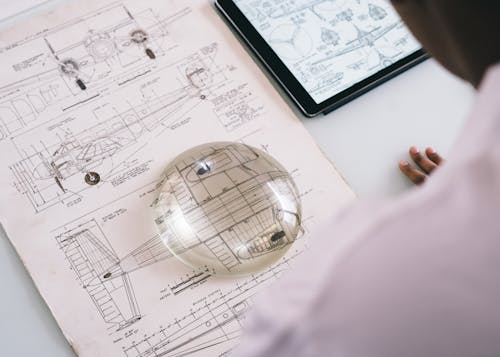
THE PRESENT AND FUTURE OF MECHANICAL ENGINEERING
While you can never be entirely sure of what the future holds, there are certainly some trends in mechanical engineering that are worth exploring. According to one survey of mechanical engineers who are working in their field, the most sought after positions for mechanical engineers will be in energy, biomedicine, computers, electronics, water, and nanotechnology. This breadth of subjects suggests jobs will be fairly plentiful for a well-educated engineer. However, with advancements in technology happening at such a rapid pace, it is impossible for someone to graduate from an academic program and have all the requisite knowledge they will need for the rest of their career. In order to succeed, mechanical engineers will have to find a way to continue their education and stay abreast of technological developments even as they begin their careers.


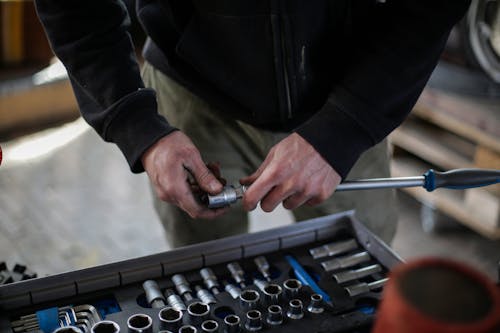




2 Comments